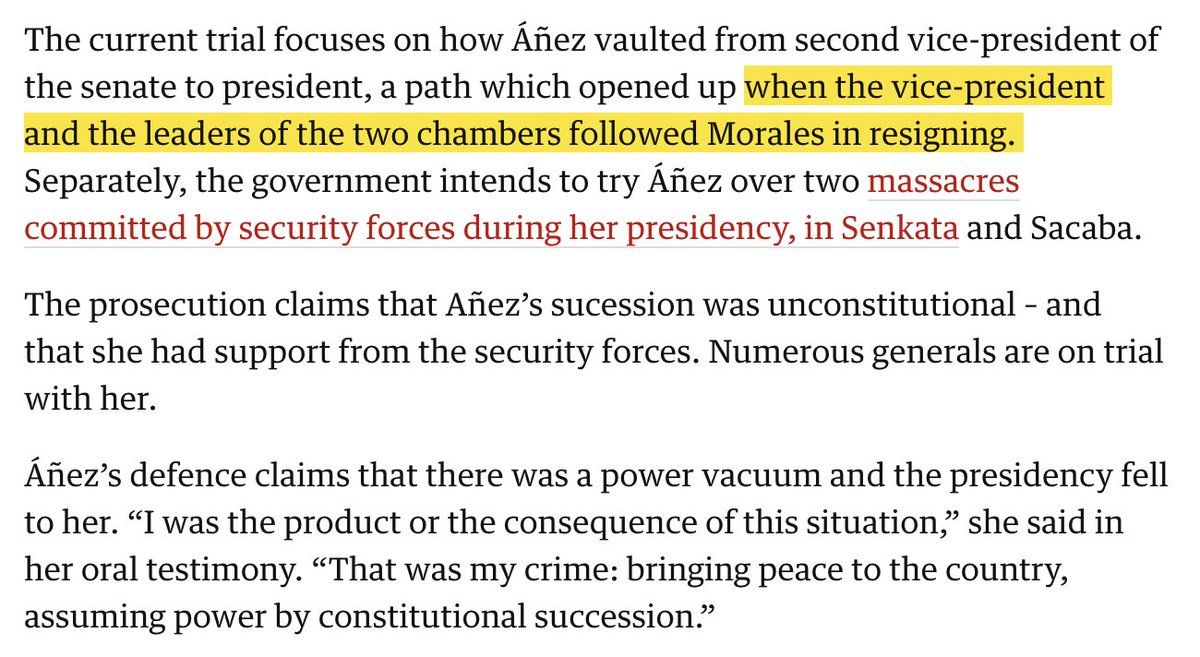-
English-language coverage from @Tajg92 / @guardian on the Jeanine Áñez trial on charges of carrying out a coup in Bolivia in 2019. A couple add-on thoughts follow… @Thomas__Graham/1522211489410600960
-
The trial should be the best chance to center national attention on the nature of the handover of power to Áñez AFTER Evo Morales' abrupt resignation under public and military pressure.
-
Áñez has military co-defendants in the case precisely because their actions to single out her for protection and allegiance during the two-day interregnum are at issue.
-
Borda's resignation. Senate president Adriana Salvatierra's resignation. The absence of a quorum in the legislature on November 12. The legislature's failure to receive and vote on any of these resignations. And Áñez's self-proclamation. All are at issue in the trial.
-
There is strong evidence of violent coercion behind Borda's resignation: "I renounce the [presidency of the] Chamber of Deputies; … may God grant that this will preserve the physical integrity of my brother who has been taken hostage." @CarwilBJ/1512570281348542470
-
Añez claimed power in a double parliamentary maneuver on November 12, first claiming the role of president of the Senate (she was its second vice president), than of president of the Plurinational State.
-
There is also a clear claim by the MAS-IPSP legislative majority that they were willing to meet, given security guarantees, which they requested. However, a full legislative session would have been able to replace Borda & Salvatierra, and name a different interim president.
-
This claim is strengthened by the fact that the same legislators did convene in the chamber on November 13.
-
In a country with a well-ordered judiciary, Añez's maneuver might have been subject to immediate judicial review. It was not, though the Plurinational Constitutional Tribunal issued a press release acknowledging her assumption of the presidency (later admitted to be nonbinding).
-
Ideally, the current trial should allow for establishing a common set of facts for Bolivians on these controversial events. And also some minimum norms for what is illegitimate.
-
I would hope that even those who advocate an "in the wrong place at the wrong time" defense for Áñez's allegedly constitutional succession can acknowledge…
-
1. Home arsons and kidnapping are unacceptable ways of choosing an interim president. 2. Security protections should be provided on a nonpartisan basis.
-
3. The lack of agreement on a neutral interim government to supervise elections was at least unwise, if not illegal.
-
I realize the continued failings of the Bolivian judiciary make all of this harder, and wish there were some kind of bipartisan forum or independent arbiter to bring these questions to light.
